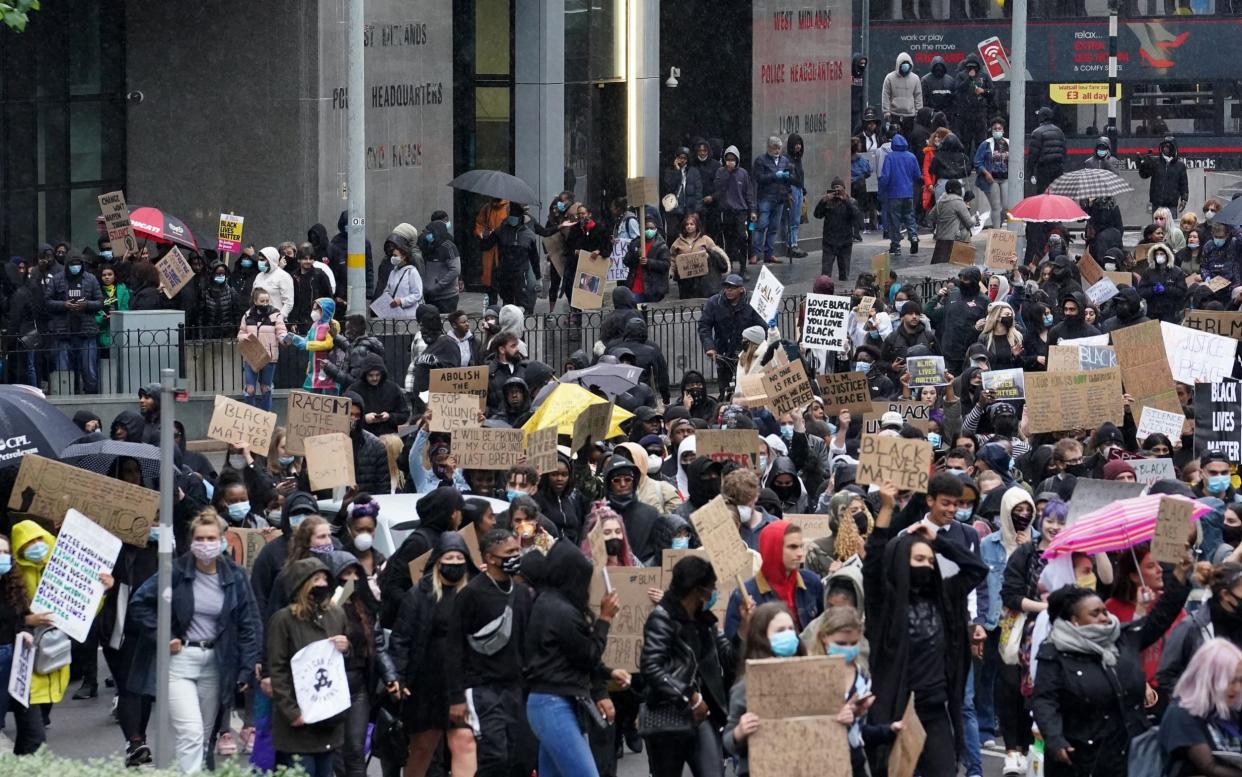Exclusive: Black Lives Matter protest may have spread virus in Birmingham, says city's health chief

A public health chief has called for an investigation into his fears that a major Black Lives Matter protest may have led to a spike in coronavirus cases in Birmingham.
Dr Justin Varney, the director of public health for Birmingham City Council, has requested an examination of a "red alert" rise in cases detected 10 days after thousands of people gathered in the city earlier this month, The Telegraph can reveal.
It comes after the Government urged people to stay away from mass protests amid concern that such gatherings could fuel the spread of coronavirus.
A spokesman for Public Health England confirmed that officials were examining whether the BLM protests had led to rise in cases across the country but said there was "no evidence" of a link in Birmingham.
However, Dr Varney said the city had seen a "small spike" of around 25 daily cases around a week and half after the protest and he believed there could be a link.
"Our protest was on June 4 and we started to get a rise on June 14, 15 and 16, and many of those cases don't have an identified locus," Dr Varney told The Telegraph.
"So they don't have a workplace, they're not at school, they're not at a hospital, they're not in a care home. So they are classified as unknown, and that's what raises the question for me. To me, that suggests a link with the protests.
"If you look at the age profile, they weren't 70-year-olds. They were 20 or 30-year-olds.
"I've asked Public Health England for national analysis to look at whether the Black Lives Matter protest could be responsible for this."
Dr Varney said the alarm was first raised in a daily "exceedance report", issued to Birmingham City Council by Public Health England, which flagged up a "red alert" on June 15.
He added that although relatively small, the rise in cases was concerning because it may suggest that more young people could have caught coronavirus without showing symptoms and risked spreading it to older family members.
"The problem is that they take it back into their homes," he said. "And it's not so much the risk to them, because young people don't often get sick. It's the risk to granny or granddad or mum and dad."
Birmingham has seen a general uptick in cases since the protest but "nowhere near" the levels in Leicester, Dr Varney said.
"It's a national question, rather than something I can fix locally," he added. "I'm actively asking, what is Public Health England doing to look at the impact of these mass protests, and is that being asked about in the contact tracing service?
"So when they ask people where they've been, they should explicitly ask, did you go to any of these protests? Have you been to any kind of mass gathering events?
"We know when the protests were. What happened in the 14 days afterwards? Were there spikes, and could the protests be the common factor?"
A source at Public Health England said officials had launched an investigation into whether mass gatherings, including BLM protests and VE Day celebrations, had led to a rise in coronavirus cases.
A PHE spokesperson said: "Public Health England is working closely with local authorities, directors of public health and NHS Test and Trace to monitor variations of positive cases of Covid-19 in their local context.
"There is currently no evidence that links case rates in Birmingham with the Black Lives Matter protests. We will continue to work with Birmingham City Council to review the data and monitor the situation."

